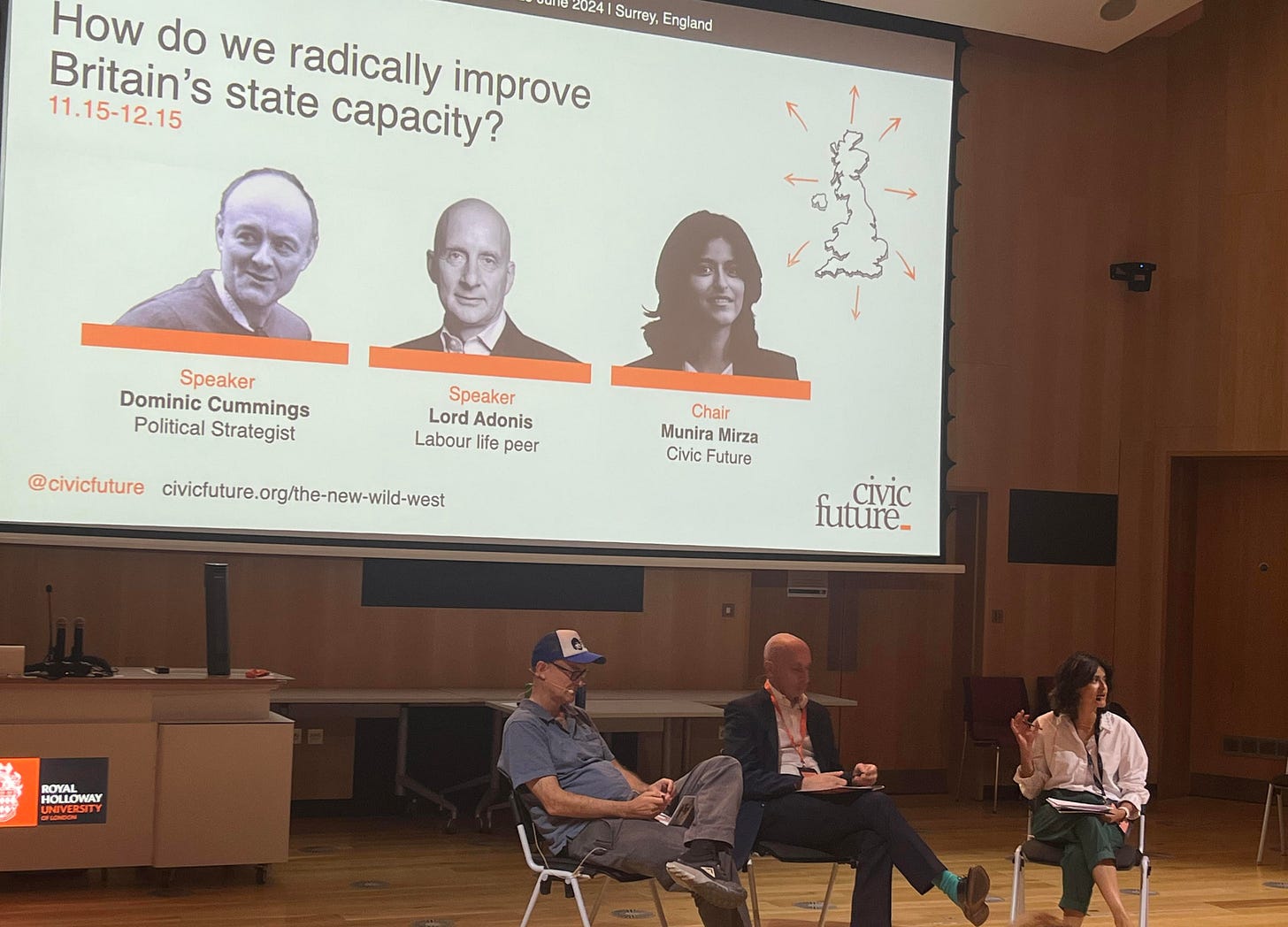Getting talent back into the political clown show
Purges will improve morale: Dominic Cummings’s guide to fixing Britain
In his book From Third World to First, the great Singaporean statesman Lee Kuan Yew argued that getting the best people into politics necessitated paying them more.
In 1994 he had proposed in Parliament that the government set a formula so that the pay of ministers, judges and top civil servants would be automatically linked to income tax returns within the private sector. Since Singapore’s economy had grown by 7-10 per cent a year for two decades, these had fallen behind and they risked suffering a shortfall of talent.
‘I was able to … rebut the arguments that ministers were more than adequately compensated by the honour of high office and the power they wielded, and that public service should entail sacrifice of income,’ he wrote: ‘I believed this high-minded approach was unrealistic and the surest way to make ministers serve only briefly, whereas continuity in office and the experience thus gained have been a great advantage and strength in the Singapore government.’
As of today, Singapore’s GDP per capita is $133,000, while that of its former colonial master is less than $60,000.
It is unsurprising, then, that the city-state has become of great interest to the many people trying to understand and fix Britain’s current malaise. Singapore was the subject of a recent article by Munira Mirza in Engelsberg Ideas on elite formation, in which she asked:
Has there ever been a time when the standard of the political class has felt so out of line with improvements in wider society? Despite being more likely to have earned a degree than in the past, elites have lost access to the deep literacy that was a given for previous generations, and which is vital to understanding the situation of their country. The most impressive world leaders of the twentieth century, from Charles de Gaulle to Lee Kuan Yew, spent time learning about the global forces facing their countries, the diverse needs of their people and how to build a team that could pursue a vision.
When Singapore became an independent country in 1965, it was lacking in natural resources, an independent military and even direct access to water. Prime Minister Lee Kuan Yew realised that excellence in public leadership would matter above anything else for his new country’s success. He made an early and explicit decision to hire on merit rather than ethnic quotas and to pay junior civil servants well to ensure they could attract talent. He was very explicit with the public about why. Today, the modern Singaporean civil service website foregrounds the word ‘excellence’ as one of its values and applications are highly competitive. The seriousness with which Singapore takes elite formation is astonishing.
Mirza is the chief executive of Civic Future, which recently hosted a conference, The New Wild West, at Royal Holloway University, the focus of the summit being why things don’t work in Britain as well as they should. Why a country which has so many talented people - and still does lots of things very well – feels so badly governed and poor. Singapore came up quite a bit.
There were a number of speakers, but the headliner was Dominic Cummings, who spoke with Lord Adonis and Mirza on the subject of government. In the talk, Cummings addressed one of the most important issues facing us – why don’t we have effective people running the country?
One major problem he identified is the decline of talent in the civil service; civil servants are too badly paid, and there are too many of them. He described how, when he first began working for the Department for Education, he replaced the permanent secretary, as well as 15 of the top of the 20 people. He described how these ‘purges’ were initially unpopular but massively improved morale among more junior talented people working in the service.
He compared the quality of people we have running government to those behind the Manhattan Project or Apollo mission, which in his view reflected a collapse in public sector competence. Going back, he also cited the quality of people who ran the Royal Navy at the time of the Revolutionary Wars; they were well-paid and doing prestigious jobs, and so these roles attracted the top talent.
Cummings argues that we need more individual responsibility within the system. This is my frustration with the various state failures involving crime, mental health and illegal immigration: there is no one to take responsibility when some catastrophic error results in innocent people dying. Someone’s signature needs to be seen; someone has to take responsibility.
In another recent interview, on Chris Williamson’s podcast, Cummings said that ‘elite talent used to go into politics and public service. What’s happened is elite talent has massively shifted out of politics and into finance, venture capital, tech, scientific research, etc. They don’t want to be part of the political clown show.’
I’ve written before that Britain’s hugely successful finance sector is something of a curse, sucking all the talent away from others areas. It’s notable that the individual behind the British state’s one outstanding achievement of recent years, the Vaccine Taskforce, was venture capitalist Kate Bingham, and it was also notable how the commentariat widely dismissed her appointment.
At Royal Holloway, Cummings also observed that Elon Musk has more in common with Nelson and the people who ran the Royal Navy than current civil servants do, many of whom lack drive, imagination and willpower.



